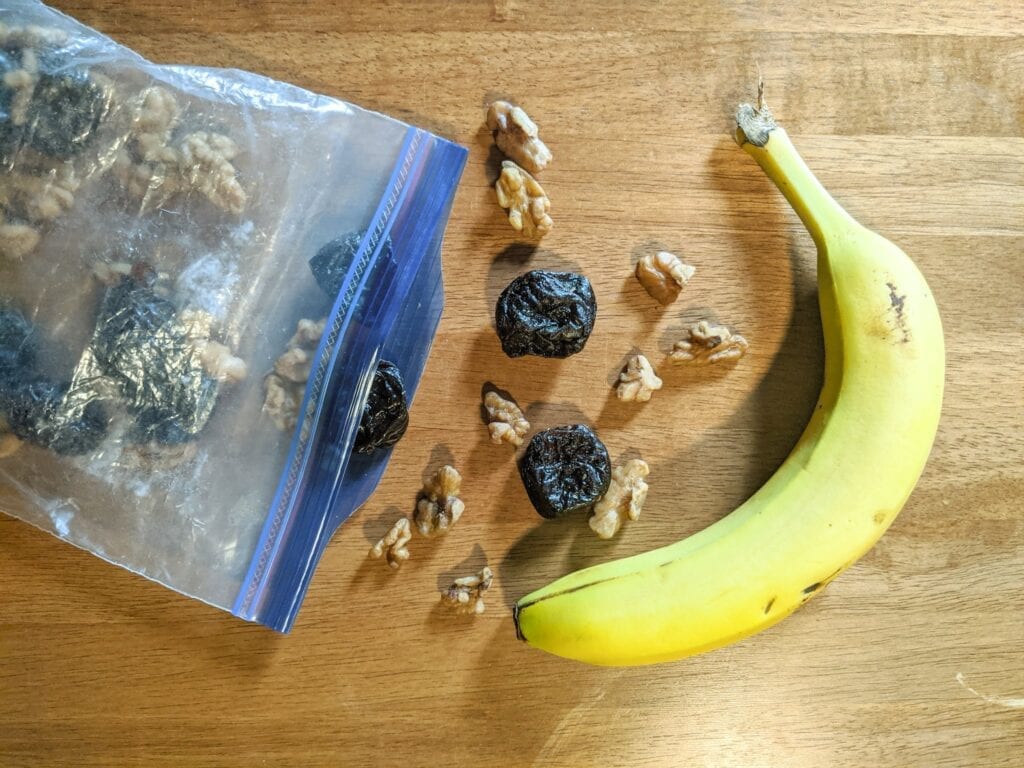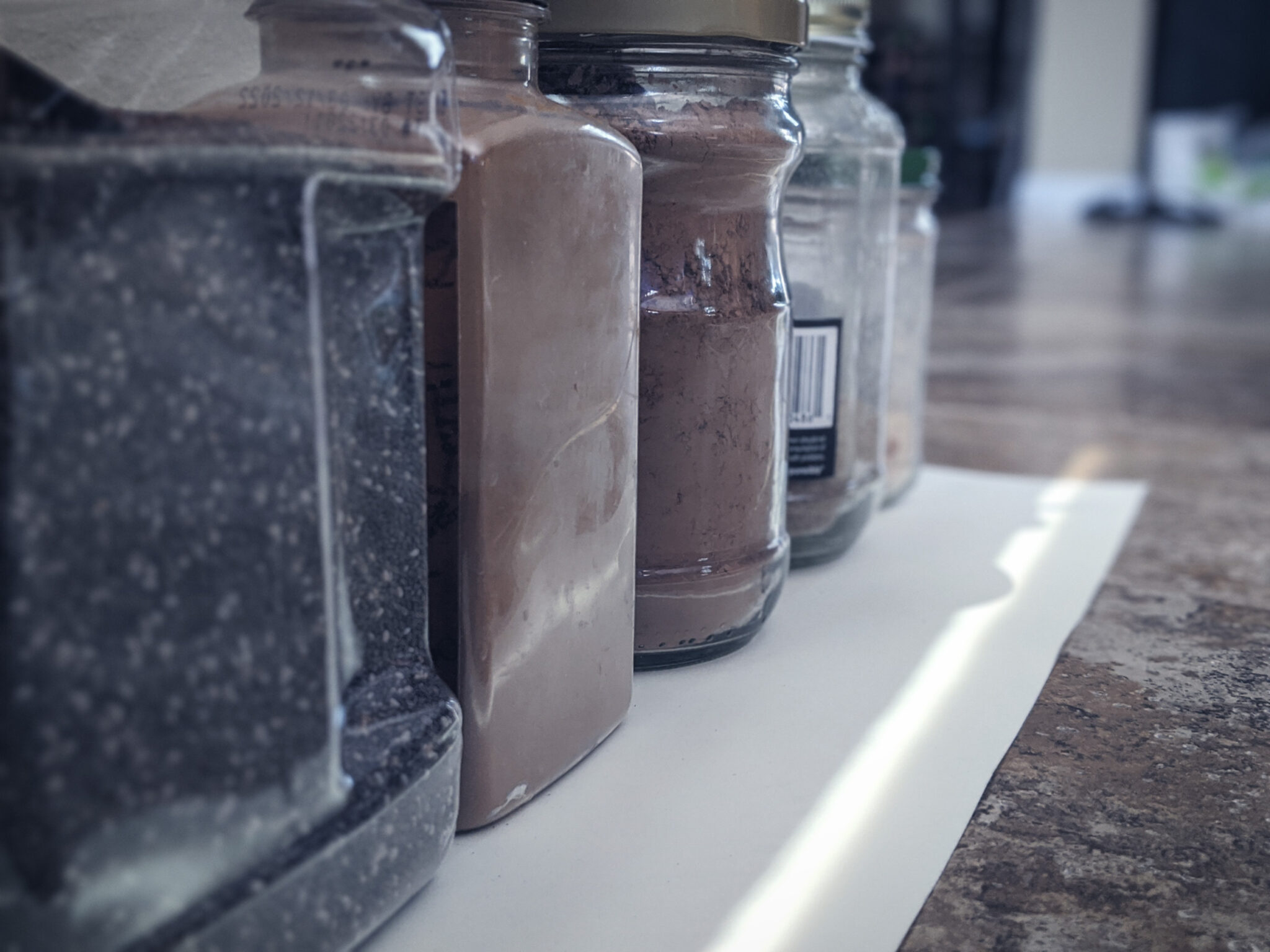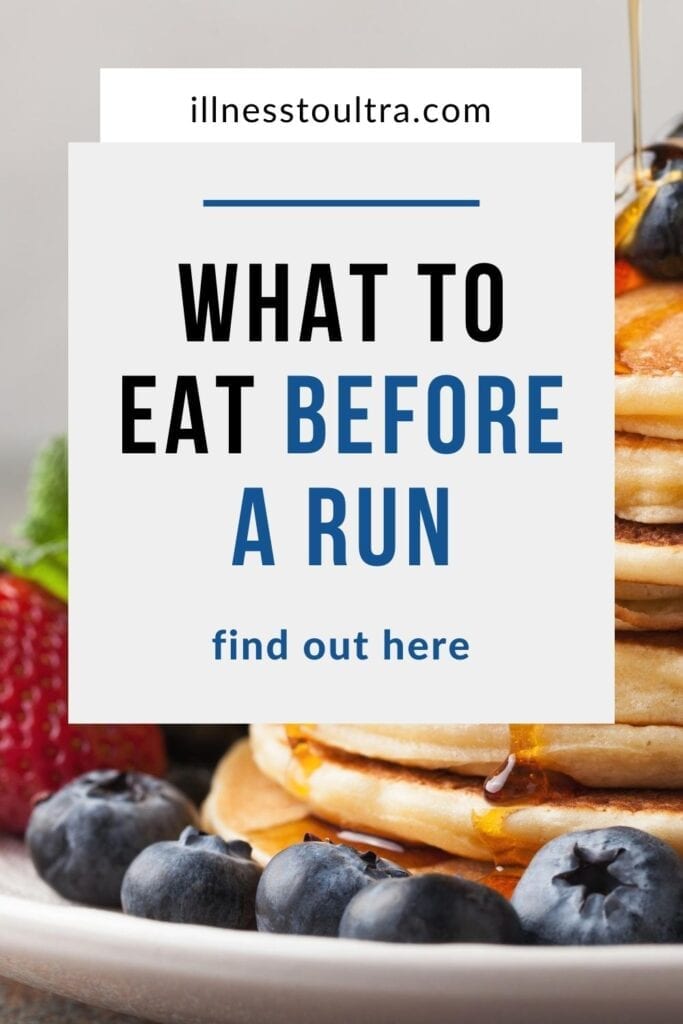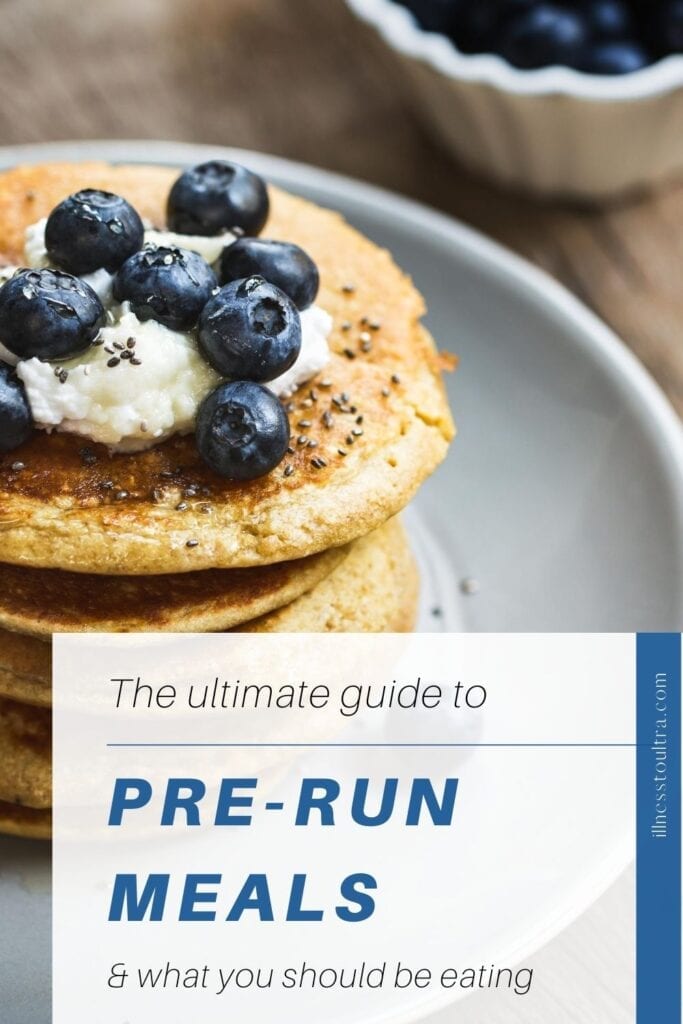Running Food Tip #1: we’ll be keeping fiber and fat low.
As a prefix to this post, I’d like to mention that we won’t be touching on any specific diets like keto, vegan, vegetarian, paleo, or carnivore (or any others out there). Most of what I discuss will be diet agnostic but may not always fully align with your requirements. You can always try and adapt the information based on your dietary needs!
Good & Bad Breakfasts Before A Run
A few examples of good breakfasts include simple rice puddings, pancakes made with Cassava, grits, cornbread, and sweet potatoes.
Some examples of bad foods for breakfasts include beans, lentils, legumes, nuts, seeds, oatmeal (which is possibly too high in fiber), chia seeds, whole wheat products, and cheese.
Now, I’ve just listed off many different foods here – but I promise there is a reason behind it. While I mentioned some of these foods as “bad,” they can still work for your pre-run meal. If you leave enough time before your run and give your body time to digest these foods, they may give you no trouble.
Now let me explain what we consider “good” and “bad,” and if you read to the end, I’ll give you a free Pre-Race recipe guide to get you on track!
Stick to Low-Fiber
Keeping fiber on the lower end of the food scale is wise – especially when it comes to long-distance running. That’s because fiber can give your digestive system a harder time. Interestingly, fiber doesn’t get absorbed by your body like other foods. Instead, it passes through your digestive system, allowing the good bacteria in your gut to feed upon it, while also bulking out your stool to help stimulate bowel movements.
On a typical day, helping a bowel movement may be what you want, but it’s not ideal for a race day. Because of this, it’s not advisable to overeat fiber close to your race time.
Before your race, try to avoid eating large amounts of high fibrous foods like:
- Grains
- Legumes
- Beans
- Some nuts and seeds.
Keep it Low-Fat
Fat can be difficult to digest on a regular day – much less a race day. As it moves through the digestive tract, fat is usually absorbed by the small intestine with the help of enzymes produced by the pancreas and bile from the liver. Isn’t our body just amazing?
The issue here is that digesting fat requires more energy and more blood flow to be absorbed appropriately. When you run, blood flow is directed towards the muscles working on running and away from the digestive system. And now there’s less blood flow for the digestive system fat cannot be adequately digested and possibly causing cramping and toilet troubles.
A little fat can be fine; it’s a case of giving your body time to digest the fat before the run.
Opt for Low-Protein
Protein has a very similar story to fat. It is also a little harder to digest due to the blood flow issue. Therefore it’s advisable to keep protein reasonably low in your meal before your morning run.
Again, if enough time is left between the run and breakfast, it’s possible to add a little more protein, but timing is critical.
So remember, no protein drinks before you head out for a run.

Say Yes To High, Easily Digestible Carbs
I’ve given you all the nutrients you don’t want to consume before your run, but what about the nutrients you do want to consume?
Glycogen and why it’s important
When we run, we usually expend our glycogen supplies (unless you’re running at a much slower pace). Our glycogen supply is like a sugar store held in our muscles and organs, ready to be drawn upon when we need energy.
That’s why it’s wise to have some fuel before you head out and run.
The easiest way to top up your glycogen supplies is with carbohydrates. But before you run and grab a muffin, it’s good to know that some carbs are easier to digest than others. And better for you.
What types of carbohydrates should you eat?
Although I do not entirely advise abstaining from sugar when running, it’s essential to keep your sugar intake on the lower scale. This way, you remove possible GI distress caused by high sugar intake, which I talk more about in “Rethinking Race Nutrition.”
I always recommend looking relying on nature to provide a complete form of carbohydrate, which is more comfortable for your body to digest.
One of my favorite go-to’s is the sweet potato, with 27 grams of carbs and a good potassium dose. Sprinkle some salt on a roasted sweet potato, and you’ve covered your fuel requirements, plus you’ve added a healthy electrolyte balance.
Another favorite of mine is rice; even though rice is a grain, it’s lower in fiber but high in easily digestible carbs. It’s easy to make a simple, lightly sweetened rice pudding for the morning. Throw in some berries for some antioxidants and flavor, of course.
It’s generally advised to only top off your glycogen supplies rather than filling yourself in anticipation of a long run.
This way, you can reduce your digestive system’s stress and be on your top performance at the starting gun.
For your pre-run meal, you’d usually be looking at around 300-400 calories to do this, which equates to around 1½ cups of rice, or one sweet potato with a ¼ cup of raisins and a few nuts.
It depends. You may have guessed that from reading the previous sections.
If you’re eating breakfast of around 300-400 calories as suggested above, it’s best to consume it around 2 hours before your run. But if you’re going even lighter, like a simple snack, you could reduce that time.
It’s all down to what you are eating and how long your body takes to digest. For example, if you want to eat your oatmeal in the morning, it’s best to leave it at least 3-4 hours before running. That way, those highly fibrous oats can pass through your digestive system to some extent before you start stressing your body further during your run.
If you’re positive, you want to add a substantial amount of fat or protein; you’re going to have to wait a similarly long time for your body to reset and digest.
The Perfect Recipes
Now you know what should be in your pre-race meals, let’s look at some recipes.
I’ve created a FREE guide with my top FOUR pre-race recipes. These meals are perfectly balanced and build upon everything we’ve learned in this post.
Not only will these meals help top off your calorie requirements before your race, but they’ll keep you feeling good throughout your run, and hopefully propel you to that next PR.


